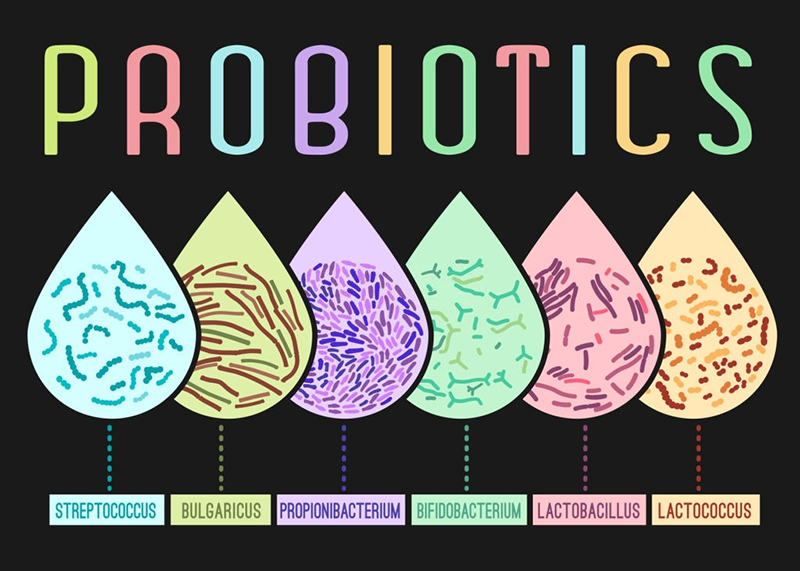Probiotics vs. Antibiotics: How These Two Affect Our Gut Health Differently
Gut health has become a hot topic in recent years, and for good reason. Our gut is home to trillions of microorganisms, including bacteria, viruses, and fungi, which all play a crucial role in our overall health and wellness. When it comes to maintaining a healthy gut, two common terms you may hear are probiotics and antibiotics. While the two sound similar, they have very different effects on our gut health. In this article, we will explore the differences between probiotics and antibiotics and how they affect our gut health.
What are Probiotics?
Probiotics are live bacteria and yeasts that are good for our health, especially our digestive system. These helpful microorganisms can be found in certain foods, such as yogurt, kefir, fermented vegetables, and kombucha. Probiotics can also be taken as supplements, which are available in various forms, such as capsules and powders.
The main role of probiotics is to maintain a healthy balance of microorganisms in our gut. They help keep harmful bacteria in check and promote the growth of beneficial bacteria. Probiotics can also help with digestion, boost our immune system, and may even provide mental health benefits.
What are Antibiotics?
Antibiotics are a class of drugs that are used to treat bacterial infections. They work by killing or stopping the growth of bacteria. While antibiotics can be highly effective at treating infections, they can also have negative effects on our gut health.
Antibiotics not only kill the harmful bacteria causing the infection, but they also kill the beneficial bacteria in our gut. This can lead to an imbalance in our gut microbiome, which can have negative effects on our health. Common side effects of taking antibiotics can include diarrhea, nausea, and stomach pain.
How Probiotics and Antibiotics Affect Our Gut Health
Probiotics and antibiotics have very different effects on our gut health. Probiotics help maintain a healthy balance of microorganisms in our gut, while antibiotics can disrupt this balance by killing beneficial bacteria. This disruption can lead to an increase in harmful bacteria, which can cause a range of health issues.
It is important to note that while antibiotics can have negative effects on our gut health, they are sometimes necessary to treat bacterial infections. In these cases, taking probiotics can help mitigate the negative effects of antibiotics on our gut microbiome.
The Benefits of Probiotics
Probiotics have been found to have numerous health benefits. Studies have shown that probiotics can help with digestion, boost our immune system, and even provide mental health benefits. Probiotics have also been found to be helpful in treating certain gastrointestinal conditions, such as irritable bowel syndrome (IBS) and inflammatory bowel disease (IBD).
Probiotics can also help prevent infections, such as urinary tract infections and yeast infections. They can also be beneficial for women’s health, as they can help prevent vaginal infections and improve vaginal health.
The Downsides of Antibiotics
While antibiotics can be highly effective at treating bacterial infections, they can also have negative effects on our gut health. Antibiotics can kill beneficial bacteria in our gut, which can lead to an imbalance in our gut microbiome. This imbalance can lead to a range of health issues, such as diarrhea and stomach pain.
Antibiotics have also been linked to the development of antibiotic-resistant bacteria. These bacteria are becoming increasingly common and can be difficult to treat with antibiotics, which can have serious consequences for our health.
Conclusion
Probiotics and antibiotics have very different effects on our gut health. Probiotics help maintain a healthy balance of microorganisms in our gut, while antibiotics can disrupt this balance by killing beneficial bacteria. While antibiotics may be necessary to treat bacterial infections, it is important to be aware of their negative effects on our gut health and take steps to mitigate these effects by taking probiotics.
Overall, maintaining a healthy gut microbiome is crucial for our overall health and wellness. Incorporating probiotics into our diet and taking them as supplements can help promote a healthy balance of microorganisms in our gut and improve our overall health.







